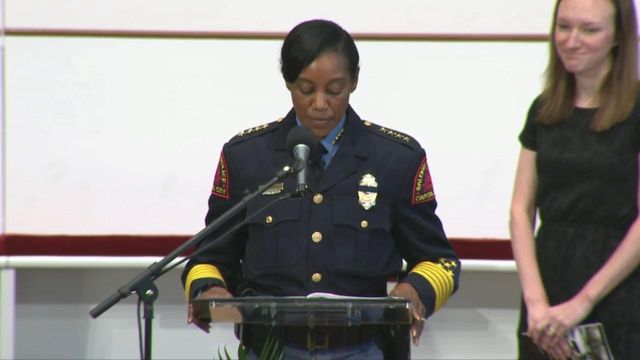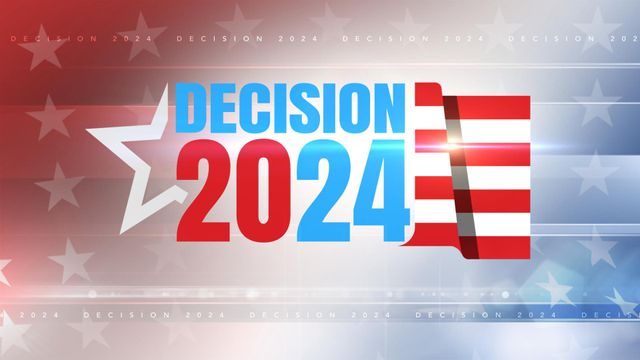Who decides if a $1.75B NC education fund transfer is constitutional? Attorneys disagree in Leandro case hearing
School boards, state executives and lawmakers argued Wednesday over who should determine whether a court-ordered $1.75 billion fund transfer for new education expenditures is constitutional.
Lawmakers argue Judge W. David Lee acted outside of his authority when he ordered the fund transfer Nov. 10.
“Every other person from every other party in this room, not one of them has the appropriations power,” Matthew Tilley told Judge Michael Robinson during a superior court hearing Wednesday. Tilley is an attorney for Womble Bond Dickson representing Senate President Pro Tempore Phil Berger, R-Rockingham, and House Speaker Tim Moore, R-Cleveland. “Every single one of them would like to take it for themselves.”
School boards and some state executives said Wednesday Lee only issued the order after inaction on a plan to improve the state’s schools forced his hand.
“Never before have I ever come across a case where within the first couple of years following a Supreme Court mandate… where there has been no action by the state, no real action,” David Hinojosa said. Hinojosa represents the Penn Intervenors, who are groups and families in Charlotte-Mecklenberg Schools. He works for the Lawyers’ Committee for Civil Rights Under Law and has worked on school funding lawsuits in Texas, Colorado and New Mexico and consulted on lawsuits in other states.
Another state executive — Controller Linda Combs — told Robinson that Lee’s order places her between a rock and a hard place: either defy a court order or defy laws that she believes restrict her ability to transfer funds.
On Nov. 10, before the General Assembly passed a new state budget that Gov. Roy Cooper signed into law, Lee ordered three state executives to transfer $1.75 billion from state coffers to three education agencies to carry out a plan he approved last spring to expand and improve the state’s education system. The plan is the court-approved remedy to the nearly 30-year-old Leandro school funding lawsuit brought by school boards and families in five low-wealth counties. The plan has largely not been funded, prompting Lee’s order.
Robinson will decide whether or how to amend Lee’s order before sending it back to the North Carolina Supreme Court, where justices will take up the issue of its constitutionality.
Robinson replaced Lee last month as the judge who oversees the nearly 30-year-old education funding lawsuit known as Leandro. Lee was removed from the case in a move some outsiders perceived as political.
Robinson said Wednesday he still needs attorneys to provide him with an explanation of which state agencies are in charge of which education programs and details on how much money the state must maintain in its reserves, versus how much lawmakers have appropriated for reserves.
Tilley has argued the state doesn’t have the money to fund the more than $700 million not yet funded of the court-approved education plan because the state’s leftover money will go toward next year’s budget and state reserve funds.
Attorneys for the state, plaintiffs and plaintiff-intervenors argued lawmakers moved more money than necessary into reserves to avoid having it available to spend on other things.
The lawsuit is nearly 30 years old, making few trips to the state Supreme Court, while millions of children have gone through North Carolina schools without a court finding that the state was providing a sound basic education as required by the North Carolina Constitution.
Throughout that time, critics across the political spectrum have noted poor school conditions, insufficient staffing or test scores far below the state’s goals.
North Carolina public schools educate 1.5 million children and employ nearly 200,000 full-time staff.
What Robinson will review
The Supreme Court has asked Robinson to make any changes necessary to Lee’s order in light of the the state budget passed and signed into law by Gov. Roy Cooper at the end of the November.
Parties in the Leandro case argued Wednesday over whether that means Robinson can only change the financial details of the order or whether it means he can throw it out entirely.
The disagreement is driven by whether parties believe Lee’s order is constitutional to begin with, which the Supreme Court plans to consider.
Robert Hunter, representing Combs, said he understands not all children have access to the same quality education.
“I feel sorry for the children that don’t have a sound basic education,” he said, also noting that he regrets schools and children didn’t get what they needed as a part of the state budget.
But Hunter, who chiefly wants Combs removed from being ordered to transfer any funds, said Lee’s order is not legally sound. The General Assembly, under the Constitution and state law, is the only entity that can appropriate funds.
“You can’t take… one part of the Constitution and pay attention to that and fashion a judicial remedy to exclusion of all other parts of the Constitution,” Hunter said.
Attorneys for the school boards suing the state and for the state, which agreed on the plan last year, have argued that Lee’s order is constitutional because the Constitution itself can be considered an appropriation. Even so, they’ve argued that Robinson isn’t charged with deciding whether it’s constitutional.
Because the state Supreme Court has decided to take up that matter, school boards’ attorney Melanie Dubis said, it’s “black letter law” that Robinson has no jurisdiction over that question any longer.
Robinson must issue a ruling before or on April 20. After that, the state Supreme Court will take up the case at a date not yet set.
Robinson’s eventual decision will determine exactly what the state Supreme Court will consider when it takes up the issue of whether Lee’s order was constitutional. The Supreme Court’s review will, in turn, determine whether the school boards and state executives have found a way to implement their court-approved, agreed upon education plan. If not, the education plan would remain but its potential future impact on North Carolina schools would be uncertain.
The status of school funding
North Carolina spends more than $10 billion annually on schools, before the federal government adds about $1 billion each year and counties add more than $3 billion each year.
The court-approved education plan calls for at least $5.6 billion in new education spending each year by 2028.
The $1.75 billion in question right now concerns only two of the years of the plan.
Lawmakers contend their new state budget provides nearly $1.2 billion in new education funding next year and effectively meets the requirement of a “sound basic education.”
But others disagree. They estimate the budget only funds $958.4 million, $72.1 million of which is nonrecurring funds. Additionally, lawmakers are including money that can be spent more broadly than what’s called for in the plan or just isn’t called for in the plan.
Amar Majmundar, an attorney representing the state, said lawmakers’ claims, without rigorous analysis, are equivalent to stay throwing money at a problem would solve it.
The court-approved education plan hasn’t been challenged in court, and Hinojosa argued it’s been a thoroughly researched plan.
“This isn’t just some wish list — believe me, if this was a wish list for the best education that you could have it would be much longer and deeper — but this meets the minimum requirement for a sound basic education,” Hinojosa said.
Attorneys for the state, plaintiffs and plaintiff-intervenors argued lawmakers can’t re-litigate court findings that the state isn’t providing a “sound basic education” and especially not in the remaining week before Robinson must issue his order.
The new budget funds employee salary increases, expansions on educator recruitment and mentoring programs, vast increases in teaching assistants and support professionals and higher spending directed toward different student groups who often show lower test scores.
It falls nearly $300 million short of requested funding for students with disabilities, English learners and other students from disadvantaged backgrounds or counties. It maintains caps on funding for students with disabilities and for English learner students.
EARLIER:
North Carolina’s nearly 30-year-old school funding lawsuit has another day in court Wednesday.
The Leandro case — named for an original student plaintiff who is no longer a party in the case — concerns how to ensure North Carolina is providing a “sound basic education” to the state’s 1.5 million public schoolchildren.
Here’s what’s happening this week and what it means:
{
"name": "anchor",
"attrs": [],
"children": null
}The hearing starts at 9:30 a.m. and will be live-streamed on WRAL.com and the WRAL News app. A roundup of briefings made in preparation of the hearing can be found here.
Here’s some background on the case:
Courts have ruled in favor of the low-wealth school boards and families who sued the state in 1994, saying the state wasn’t providing an adequate, Constitutionally promised education. Courts have since found a solution has yet to be implemented.
Former Leandro Judge W. David Lee approved a plan in 2021, submitted by the state and the plaintiffs, that seeks to resolve the deficiencies in education. It calls for more than $5.6 billion in new education spending by 2028, amounting to a more than 50% increase in state spending on schools.
It funds employee salary increases, expansions on educator recruitment and mentoring programs, vast increases in teaching assistants and support professionals and higher spending directed toward different student groups who often show lower test scores.
The plan has mostly not been funded. State officials estimated last week that nearly $1 billion of it was funded in the new state budget passed in November, mostly for salary increases.
About $71.2 million of $958.4 million is non-recurring funds, though the plan calls for them to continue into future years.
Q: What’s happening Wednesday?
A: Judge Michael Robinson will weigh opinions on how he should amend an order issued by his predecessor to move $1.75 billion in state funds to cover the costs of a plan designed to expand K-12 funding and supports.
The plan is know in court as the comprehensive remedial plan and colloquially as the “Leandro Plan.”
Robinson’s predecessor, Judge W. David Lee, ordered the fund transfer Nov. 10, before the state passed a new budget that effectively funds as much as $1 billion of the plan, through June 30, 2023.
Plaintiffs, plaintiff-intervenors and the state-defendants argue Robinson’s only duty is to review the impact of the state budget on Lee’s order before sending a new version to the state Supreme Court. That interpretation means that Robinson’s charge is to decide if the $1.75 billion total needs to simply be reduced to account for the budget.
But Senate President Pro Tempore Phil Berger, R-Rockingham, and House Speaker Tim Moore, R-Cleveland, argue — as intervenor-defendants — that Robinson should strike the entirety of Lee’s order because no court has determined whether the new state budget meets the Constitutional requirement of a “sound basic education.” In fact, they argue the budget “more than adequately” provides for such an education, citing the budget itself as the supporting evidence.
Q: What’s at stake?
A: At stake is funding and policies for the 1.5 million North Carolina public schoolchildren and the nearly 200,000 full-time public school employees.
Parties agree the budget covered most of what the plan calls for this year and next year.
Here’s a simplified breakdown on what was funded and what wasn’t in the plan:
{
"name": "footable",
"attrs": {
"id": "20232948",
"identifier": "state_bud_leandro_2123"
},
"children": null
}Q: What happens next?
A: The state Supreme Court is hearing plaintiffs’, plaintiffs-intervenors’ and state-defendants’ appeal of a Court of Appeals panel order that blocked Lee’s order. The court will determine its constitutionality. But the court will only do so once Robinson has reviewed Lee’s order.
So however Robinson decides — whether to change only the dollar amounts in Lee’s order or scrap it entirely — will impact what the state Supreme Court will review.
Robinson must issue a decision by April 20.











